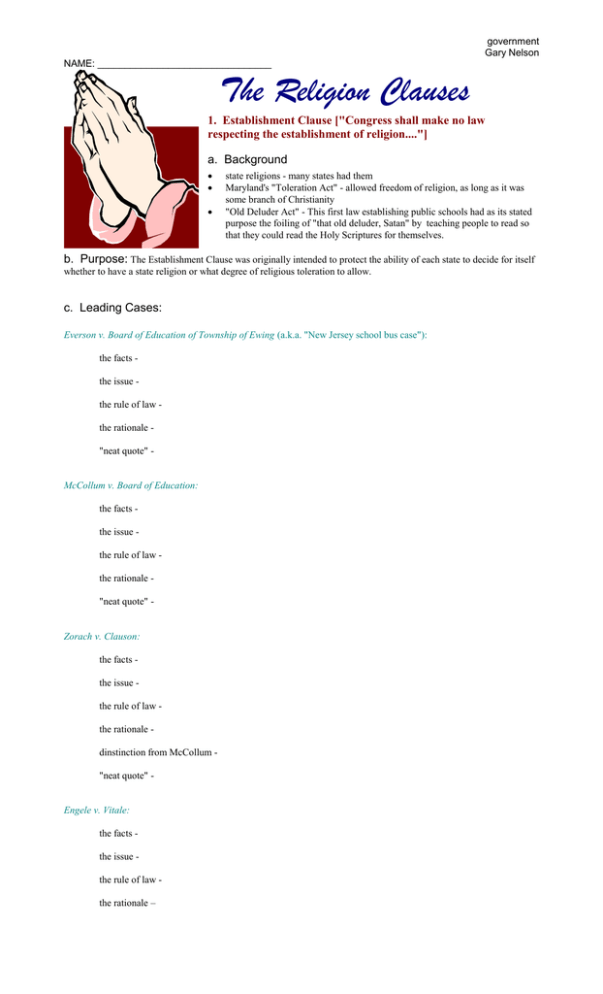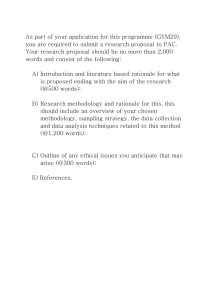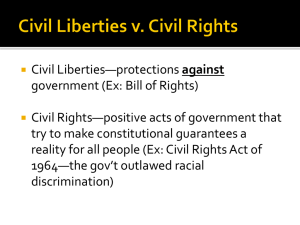The Religion Clauses
advertisement

government Gary Nelson NAME: ________________________________ The Religion Clauses 1. Establishment Clause ["Congress shall make no law respecting the establishment of religion...."] a. Background state religions - many states had them Maryland's "Toleration Act" - allowed freedom of religion, as long as it was some branch of Christianity "Old Deluder Act" - This first law establishing public schools had as its stated purpose the foiling of "that old deluder, Satan" by teaching people to read so that they could read the Holy Scriptures for themselves. b. Purpose: The Establishment Clause was originally intended to protect the ability of each state to decide for itself whether to have a state religion or what degree of religious toleration to allow. c. Leading Cases: Everson v. Board of Education of Township of Ewing (a.k.a. "New Jersey school bus case"): the facts the issue the rule of law the rationale "neat quote" - McCollum v. Board of Education: the facts the issue the rule of law the rationale "neat quote" - Zorach v. Clauson: the facts the issue the rule of law the rationale dinstinction from McCollum "neat quote" - Engele v. Vitale: the facts the issue the rule of law the rationale – what wasn't decided - Supreme Court decisions only apply to the SPECIFIC ISSUE before the Court. Therefore, issues such as teacher-led (and teacher written) prayer, or student-led (and student written) prayer, or prayers in school related activities, were not affected by the Engele decision. "neat quote" - Abington School District v. Schempp: the facts the issue the rule of law the rationale "neat quote" - Stone v. Graham: Wallace v. Jaffree: holding - later decisions - The Court has held all moment of silence laws to be unconstitution, regardless of whether or not they mention the possibility of prayer. Questions: Can students pray in school? Can teachers lead students in prayer? Can coaches lead students in prayer? Can students pray together before a game, without a faculty member present? Can the Bible be studied in school? Bob Jones Univ. v. United States: an exception to the state neutrality principle - 2. FREE EXERCISE CLAUSE ["Congress shall make no law ... prohibiting the free exercise thereof...."] a. Background - (see above) b. Not an absolute right c. Leading Cases Reynolds v. United States: Jacobson v. Massachusetts: Welsh v. United States: Wisconsin v. Yoder: West Virginia Board of Education v. Barnette: rationale - "If there is any fixed star in our constitutional constellation, it is that no official, high or petty, can prescribe what shall be orthodox in politics, nationalism, religion, or any other matter of opinion of force citizens to confess by word or act their faith therein."

